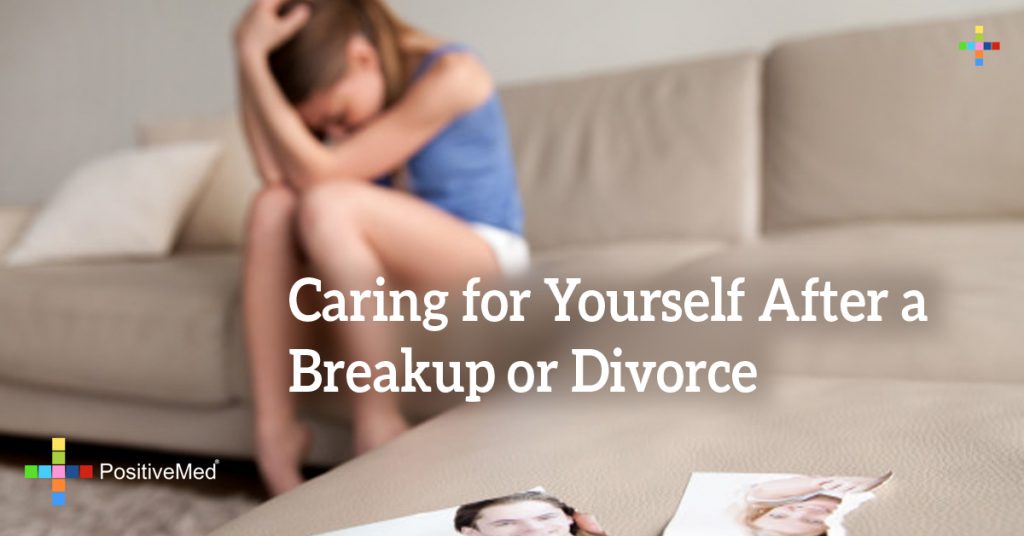
Caring for Yourself After a Breakup or Divorce
3 things you can do for you after the end of a relationship
By Erica B. Slotter, Ph.D.
You don’t need me to tell you that the end of a romantic relationship is rough. Even under the best, most amicable, “we’ve just grown apart” circumstances, breakups and divorces cause people non-trivial amounts of emotional distress and are even associated with physical health issues for some.
So, what’s to be done? In this post, I thought I would discuss a few (although certainly not all) of the things social scientists have identified as important in helping individuals’ recover from the loss of a relationship. Specifically, I wanted to focus on things you can do to take care of yourself after a relationship ends. Ready? Here we go…
1.Be compassionate toward yourself.
When relationships end, people tend to be very hard on themselves. They often replay the last few weeks or months of their failed coupling and think about all of the things they could or should have done differently. I have two words for you: Stop it.
Yes, there are probably things that you wish you could change, but unless you have a time machine, that’s simply not an option. What research shows you can, and should, do is treat yourself with compassion and understanding. Self-compassion involves viewing yourself in with kindness and acceptance, not being overly focused or identified with negative emotions, as well as acknowledging that many others in the world have likely been where you are now at some point in their lives (Neff, 2003). Recent work found that divorcees who expressed higher levels of self-compassion when talking about the end of their marriage also reported fewer intrusive negative thoughts and feelings about their divorce than those who were less self-compassionate. What was especially impressive was that higher self-compassion predicted reduced negativity even nine months later (Sbarra et al., 2012). So, be nice to yourself.

2.Look for the silver lining.
On a related note, focus on the good things that will come out of the end of your relationship. Perhaps now you feel you can cook foods your partner never liked, or finally take that pottery class. Maybe you can simply feel grateful that a painful relationship is over, and in the future you can look for a better one.
Recent work that a student of mine and I just had accepted into the Journal of Social and Personal Relationships has shown that looking for the positives in a negative situation –something called a redemptive narrative— can help alleviate emotional distress. Specifically, we found that, among individuals who had recently split up with their boyfriend or girlfriend, experienced less emotional distress over the course of a 5 day study if they looked for the silver linings, or good things to come out of, the dark cloud of their breakup (Slotter & Ward, 2014). I admit, mentioning this work is a bit of shameless self-promotion on my part, but focusing on the redeeming aspects of starting a new chapter of your life seems like a fairly simple job that could yield great benefits.
3. Do things you enjoy.
When we’re in a romantic relationship, we tend to become increasingly similar to our partner over time (Aron & Aron, 1997). This is a good thing for both us and our relationship, while the relationship is ongoing. That said, this overlap between ourselves and our partner can get us into trouble when the relationship is over. Generally speaking, when we lose a relationship, we can lose part of ourselves and become confused about who we are.
This is actually part of what is so upsetting about the end of a relationship (Slotter at al., 2010). Notably, this self-upheaval tends to be worse the more committed we were to our now defunct relationship. However, recent work has shown that this isn’t always the case. Gary Lewandowski and colleagues (2007) have shown that when a relationship wasn’t satisfying while it was ongoing, individuals actually experience self-growth after their breakup. So, I guess the take home message would be to re-discover who you are in the absence of your ex-partner. Focus on ways that you can grow as a person and do things that bring you, just you, happiness.
In short, the end of a romantic relationship is hard, but it is hardly the end of the world. Caring for yourself is one way get to your life back on track and yourself feeling happy and whole again. Good luck!
 Erica B. Slotter, Ph.D. is a social psychologist and assistant professor at Villanova University in Villanova, PA. Her research interests center around how our relationships shape who we are and how who we are shapes our relationships.
Erica B. Slotter, Ph.D. is a social psychologist and assistant professor at Villanova University in Villanova, PA. Her research interests center around how our relationships shape who we are and how who we are shapes our relationships.
Source: Psychology Today





